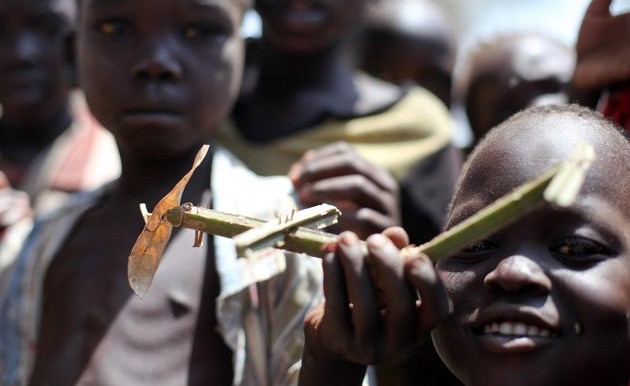Farmers predict crop failure will be around 70% this year, greatly impacting the living situation in South Kordofan. “The harvest is weak, really weak,” a farmer told Radio Tamazuj by phone from government-controlled Habila. “There is no longer commercial farming.”
Farmers in Habila, Al Azraq and Alabit in South Kordofan express their anxiety that the harvest will end in a fiasco this season. A number of farmers fear that a deterioration security situation and a dwindling labor force in South Kordofan will result in a crop failure.
One farmer explained that labor shortages followed the outbreak of war in Southern Kordofan in June last year due to the poor local security and the flight of many South Sudanese laborers after the independence of South Sudan, either voluntarily or forced by the Sudanese government. He added that another factor contributing to the lack of workers was the discovery of gold in the Alleiri and Umm Doual areas in the eastern mountain range, tempting workers to test their luck digging for gold.
In a related report from the rebel-held territories, thousands of civilians residing in Kao Naro and Werney south-east of Abu Jabiha are said to be suffering from severe lack of food. Nairon Philip, a member of the SPLM-N’s humanitarian secretariat, in a press statement to Radio Tamazuj said that said that more than thirty thousand citizens of Kao Naro and Werney in South Kordofan are suffering from severe food shortages. He warned that the humanitarian situation in these areas could exacerbate if humanitarian organizations are not allowed to enter.
Nairon Philip stated that Kao Naro and Werney have been isolated throughout the period of conflict in South Kordofan, pointing out that they fall under the control of SPLM-N and hence have been excluded from permissible areas for aid organizations operating from Sudan. He also stressed the increasing incidence of acute malnutrition among children in addition to widespread diarrhea amid complete lack of medications. In the press statement, the SPLM official also urged the trilateral mechanism of the United Nations, African Union and Arab League as well as humanitarian organizations to play its role in urging Khartoum to allow humanitarian organizations to enter before it too late.



